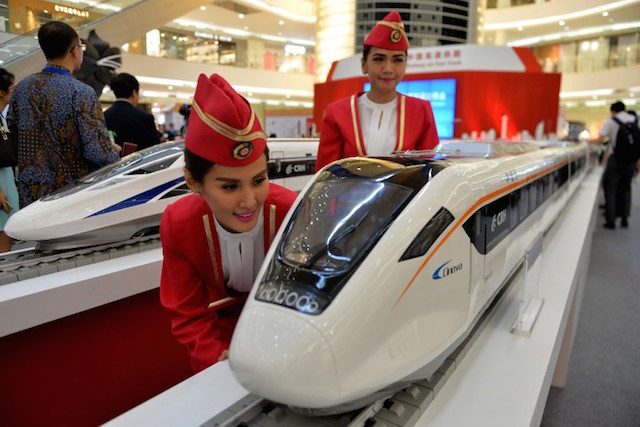SUMMARY
This is AI generated summarization, which may have errors. For context, always refer to the full article.

JAKARTA, Indonesia – The China Railway Engineering Corporation (CREC) denied on Friday, January 28, suggestions that it marked up the investment value in its Jakarta-Bandung rapid train project and was much more expensive than its similar project in Iran.
“The investment value announced (by the Iranian government) does not cover the whole cost of above-rail development, and certainly not the total value of the project,” the CREC said in a press release.
Earlier media reports said that CREC signed a contract worth $2.7 billion to build a 400-kilometer high-speed railway project connecting Tehran and Isfaham in Iran, compared to $5.5 billion to build the 142-kilometer Jakarta-Bandung high-speed train project.
Vice President Jusuf Kalla will reportedly summon the Chinese ambassador to Indonesia to explain the price discrepancy.
CREC said for the Tehran-Isfaham railway it would involve in some sections of the project’s above-rail development and that it has yet to sign an agreement with the Iranian government.
“For the Jakarta-Bandung rapid railway project, CREC would invest in both above-rail and below-rail work,” it said.
Last year Jakarta asked for proposals from investors for the ambitious project, with China and Japan bidding so intensely a senior minister likened Indonesia to a pretty girl being courted by many admirers. (READ: China, Japan battle to build Indonesia’s first bullet train)
After a chaotic bidding process, China was awarded the contract – infuriating Japan, which was long expected to build the track given its high-speed rail expertise. (READ:Indonesia’s bullet train deal with China: ‘Delusional,’ no coordination)
Indonesia lacks a mass-transport system, forcing its increasingly affluent 250 million people to rely heavily on private transport, resulting in grinding traffic in the biggest cities.
Jokowi said he hoped the high-speed railway would spur demand for future public transport alternatives in other parts of Indonesia, as well as speed up the movement of people and goods between cities, helping economic growth.
Construction of the line is expected to finish by 2018, and it should be operational the following year. – Rappler.com
READ MORE:
Add a comment
How does this make you feel?
There are no comments yet. Add your comment to start the conversation.